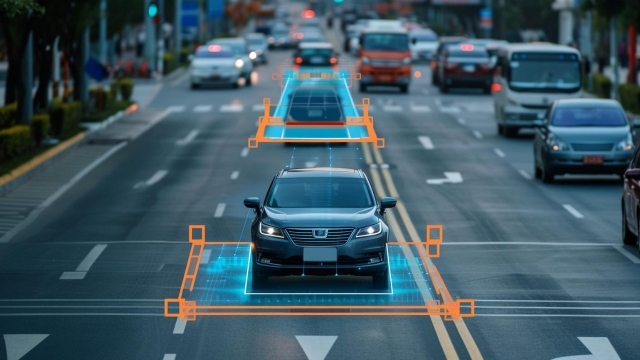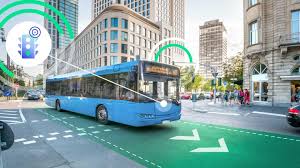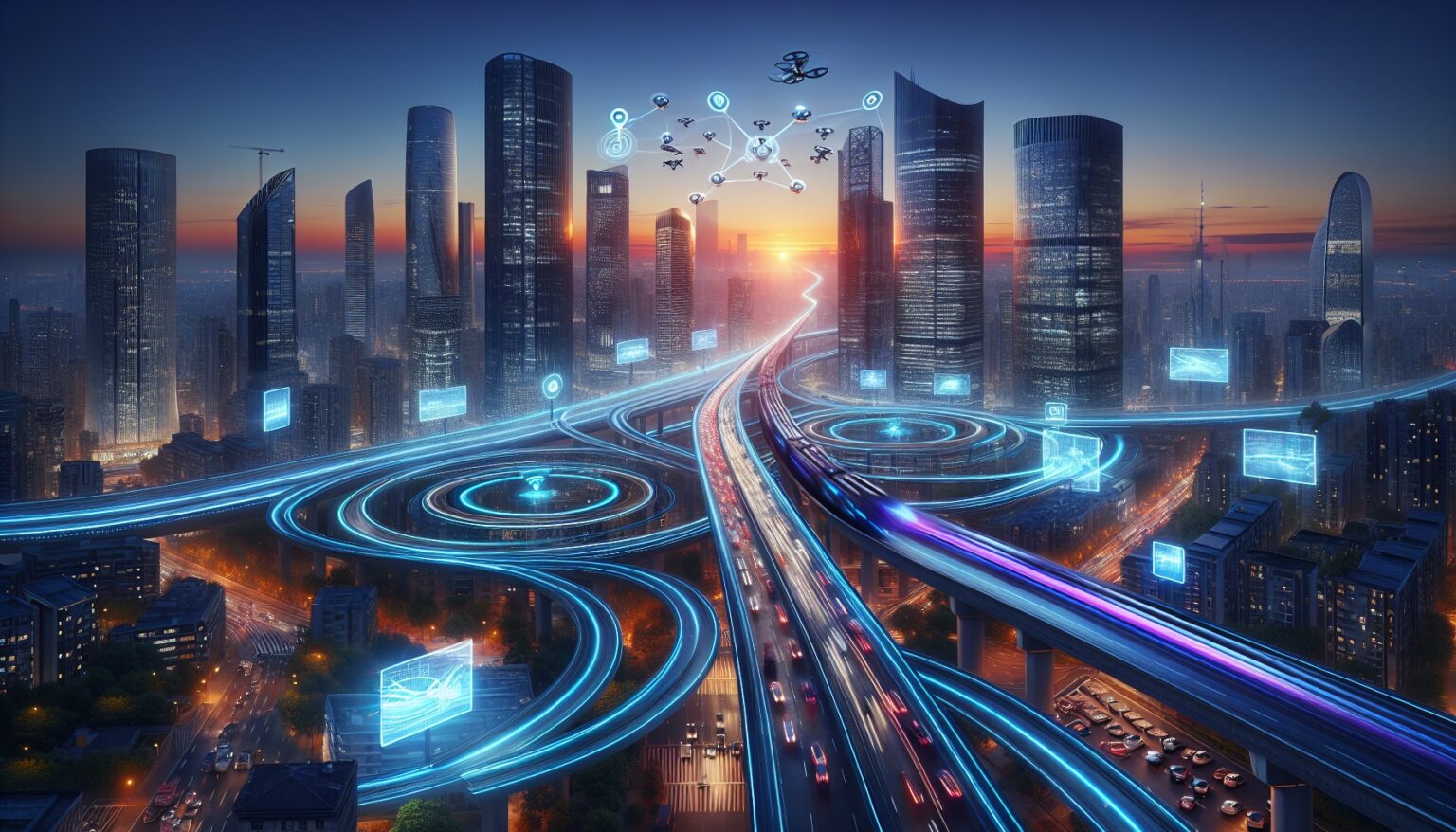The capital city of Bahrain, Manama, has always been recognized for its vibrant spirit, thriving economy, and commitment to progress. Today, it stands at the brink of a transformative journey that will redefine how people move, connect, and live. With the rise of smart transportation systems powered by digital innovation, automation, and sustainability, the future of mobility in Manama is set to be powerful, efficient, and people-centric. This transformation is not just about cars, buses, or trains it is about creating an ecosystem where technology and human needs work hand in hand to enhance everyday life.
The vision of smart transportation in Manama is deeply rooted in its goal of becoming a modern, connected, and sustainable city that caters to residents, businesses, and visitors alike. By adopting intelligent mobility solutions, the city is preparing itself to address challenges such as traffic congestion, carbon emissions, and limited land space, while also unlocking new economic opportunities.
The Changing Landscape of Mobility
Over the years, Manama’s transportation system has grown steadily to keep pace with its expanding population and economic growth. However, the traditional systems dominated by private vehicles and limited public transport are beginning to show their limitations. Congestion during peak hours, rising fuel costs, and environmental concerns have made it clear that the city must adopt smarter, greener solutions to ensure sustainable progress.
Smart transportation goes beyond simply upgrading buses or roads. It involves a holistic approach where digital technologies such as artificial intelligence, the Internet of Things (IoT), big data analytics, and automation are integrated into the mobility network. These innovations can make traffic flow smoother, reduce travel times, and ensure safety, while also contributing to Bahrain’s broader vision of becoming a smart nation.
The Role of Technology in Smart Transportation
Technology is the heartbeat of Manama’s smart transportation ambitions. From sensors installed on roads to AI-powered apps that guide commuters, every element is designed to optimize the system. Real-time traffic monitoring powered by AI can help authorities manage congestion more effectively, while connected vehicles will be able to share information about traffic, accidents, or road conditions in real time.
Digital payment systems are also making public transport more seamless, encouraging more people to leave their private cars at home. Similarly, ride-hailing platforms integrated with smart navigation tools allow passengers to move across the city with greater ease and predictability.
On a broader scale, big data analysis helps policymakers understand patterns of movement, allowing them to design transportation networks that align with the actual needs of residents. In a city like Manama, where economic growth and tourism are integral, such precision in planning is crucial.

Sustainability at the Core
One of the driving forces behind smart transportation in Manama is the global call for sustainability. Cities around the world are seeking to reduce their carbon footprint, and Manama is no exception. The adoption of electric vehicles (EVs), hybrid buses, and smart charging infrastructure are already gaining traction.
Public transport fleets are expected to gradually transition toward zero-emission vehicles, reducing pollution and improving air quality in the city. Moreover, smart traffic management systems that reduce idling time and optimize routes will also contribute significantly to lowering emissions.
Sustainability is not only an environmental goal but also an economic one. By investing in cleaner, smarter transportation, Manama positions itself as a forward-thinking city that attracts investors, businesses, and residents who value green initiatives.
The Rise of Shared Mobility
Another cornerstone of Manama’s transportation future is the concept of shared mobility. Carpooling platforms, bike-sharing systems, and ride-sharing apps are creating a culture where individuals can enjoy the benefits of transport without the burdens of ownership.
This trend is particularly relevant for younger generations, who prioritize convenience and cost-efficiency over owning vehicles. By making shared mobility accessible and affordable, Manama can reduce traffic congestion, free up parking space, and lower overall transportation costs for its people.
Shared mobility also supports social inclusivity. By ensuring that transport options are available across different income levels, the city fosters a more equitable environment where mobility is not limited to those who can afford private cars.
Smart Infrastructure for a Smart City
The success of smart transportation relies heavily on infrastructure. In Manama, plans are in place to develop smart roads, connected intersections, and integrated transport hubs that seamlessly link buses, taxis, bicycles, and pedestrian routes.
Smart traffic lights powered by AI will adjust dynamically to changing traffic conditions, reducing unnecessary waiting times and easing congestion. Similarly, digital signboards will provide real-time updates about traffic flow, parking availability, and alternative routes.
Infrastructure also extends to digital platforms. Mobile apps will become the central point where users can access all transport-related services, from purchasing tickets to planning the fastest route to their destination.
Preparing for Autonomous Vehicles
Autonomous vehicles (AVs) are no longer a distant dream they are an emerging reality. For Manama, preparing for AV adoption is an essential part of its long-term vision. These self-driving cars and buses can bring significant advantages, including reduced accidents, improved efficiency, and enhanced accessibility for the elderly and differently-abled individuals.
The city’s infrastructure development already considers future requirements such as dedicated AV lanes, smart parking systems, and advanced communication networks between vehicles and infrastructure. By being early adopters, Manama can position itself as a pioneer in autonomous mobility within the Gulf region.
Empowering People with Choice
At the heart of smart transportation is the idea of empowering people. The future system in Manama is not about replacing one form of travel with another but about offering a variety of choices. Residents will be able to choose between electric buses, shared bikes, autonomous taxis, or walking-friendly routes depending on their needs.
This flexibility ensures that transportation adapts to the lifestyle of the people rather than forcing people to adapt to limited transport options. It creates a more humanized system that understands and respects individual preferences.

Economic Opportunities Through Smart Transportation
The shift to smart transportation is not only about convenience and sustainability; it also brings significant economic benefits. New industries such as EV manufacturing, charging infrastructure, and data-driven mobility services create jobs and attract foreign investment.
Manama, as a financial hub, stands to benefit from being a leader in the smart transportation revolution. International businesses looking for cities with modern, efficient infrastructure will find Manama more appealing. Additionally, the tourism sector will thrive when visitors experience the ease and efficiency of a connected mobility system.
Overcoming Challenges Ahead
Like any major transformation, the road toward smart transportation in Manama will face challenges. Funding such large-scale projects requires careful planning and partnerships between the public and private sectors. Ensuring data privacy and cybersecurity within smart systems is also crucial to maintain public trust.
Moreover, public acceptance is a key factor. Transitioning from traditional vehicles to shared mobility or autonomous cars requires cultural adaptation. Awareness campaigns, incentives, and pilot programs will play a critical role in easing this shift.
The Human Side of Transformation
Beyond technology and infrastructure, smart transportation in Manama is ultimately about improving the quality of life. Reduced traffic stress, cleaner air, faster commutes, and safer roads directly impact the daily lives of residents. Families will spend more time together instead of being stuck in traffic, businesses will run more efficiently, and visitors will enjoy a seamless travel experience.
The human side of transportation reminds us that every innovation should serve the people. By placing human needs at the center of its vision, Manama ensures that its smart transportation future is not just about being modern but also about being meaningful.
Looking Toward a Bright Future
As Manama continues its journey toward becoming a smart city, transportation will serve as one of its strongest pillars. The integration of technology, sustainability, and human-focused design will not only transform how people move but also redefine the city’s identity.
In the years to come, Manama could emerge as a model city for the Gulf and beyond, showing how smart transportation can drive economic growth, environmental responsibility, and social progress. The promise of a connected, clean, and inclusive mobility system represents hope, ambition, and innovation working together.
The future of smart transportation in Manama is more than just vehicles and roads it is a vision of a thriving city where progress moves hand in hand with people’s well-being. With bold steps, collective effort, and unwavering vision, Manama is on its way to building a transportation system that is not only smart but also truly transformative.
Do follow Gulf Magazine on Instagram.
Also Read – Drone Technology Driving Bahrain’s Agricultural Revolution



